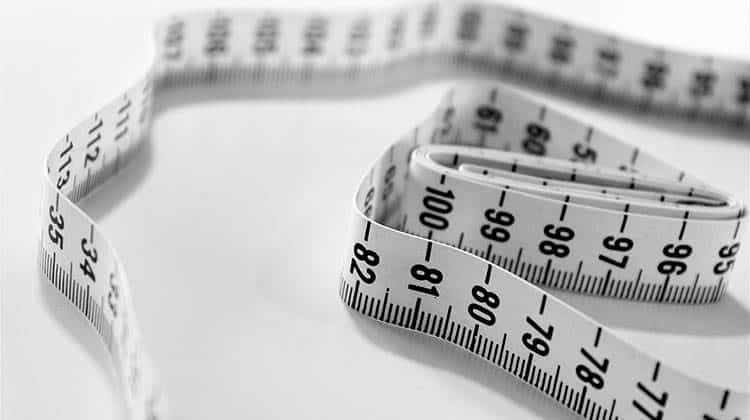Intermittent fasting is a powerful tool for athletes, such as climbers, bodybuilders, gymnasts, and Ninja Warriors, to easily get rid of excess body fat, generate more human growth hormone, prevent inflammation, and improve weight-to-strength-ratio, focus, and longevity. And all of this while not only keeping your muscles but instead boosting muscle growth when exercising.
Sounds great, doesn’t it?
So, here is all you need to know about intermittent fasting and how it will help you in getting in the best shape!

You will learn:
What is intermittent fasting?
Intermittent fasting, also known as time-restricted eating, is basically an eating schedule where you eat within a specific period and fast the rest of the time. The most popular schedule is eating within a window of 8 hours (for instance, 11 a.m. to 7 p.m.) and fasting for 16 hours per day. You can eat as much as you usually would eat. You just have to move your meals closer together. There are more intermittent fasting schedules, and I’m going to cover the most prominent ones later.
Intermittent fasting is not just for the pro athletes or celebrities like Hugh Jackman or Dwayne Johnson. It’s for everyone who wants to have a better physique and improved health.
What happens during fasting
Normally, your body draws on glucose in your liver and your muscles for energy. During the fasting window, these glucose stores get depleted, the levels of insulin in your body drop while those of human growth hormone (HGH) rise.
As soon as the glucose stores are fully depleted your body goes in ketosis. In this state, your body breaks down fat to produce ketones, which can then be used by your body for energy. These ketones are not only used for energy, but also bring a lot of other health benefits, such as reduced appetite, lower inflammation, and less oxidative stress.
Researchers say that during the fasting window, cells are also put under mild stress. “And they respond to the stress adaptively by enhancing their ability to cope with stress and, maybe, to resist disease”, says Mark Mattson, senior investigator for the National Institute on Aging, part of the US National Institutes of Health.[1]
Although intermittent fasting is a powerful way to lose weight, it’s no diet by definition, but more a choice of lifestyle to reap a lot of amazing benefits.
Health benefits of intermittent fasting
Eating no food for a certain period does your body and your brain much good. From an evolutionary standpoint, this makes sense. Back in the days when humans had to hunt for food, natural selection would have favored individuals whose bodies and brains functioned better than others during times of no food. Our body isn’t adapted to the modern way of living with three full meals a day and snacks in between. Instead, we are actually made for times with less or no food, where amazingly positive cellular and metabolic processes come into play.

With intermittent fasting you can benefit from these processes, boost your performance, and enjoy the following health benefits[2]:
- Increased energy
- Weight and body fat loss
- Improved autophagy and cellular repair
- Reduction of inflammation
- Higher levels of human growth hormone
- Boosted cognitive function
- Protection against Alzheimer and Parkinson (potential)
- Lower blood pressure
- Improved blood sugar regulation
- Protection against type 2 diabetes[3]
- Longevity (potential)
- Lowered blood cholesterol
Weight and body fat loss
Intermittent fasting can help you to lose body fat in a very effective way. Studies have consistently found that following an intermittent fasting schedule can significantly reduce body weight.[4] So, give it a try if you want to get ripped!
Increased autophagy and cellular repair
Autophagy is the body’s ability to clean up cells that are old or damaged. Studies have shown that short-term fasting is an effective way to trigger autophagy, which is crucial for preventing malignancy, infection, and neurodegenerative diseases[5].
Higher levels of human growth hormone (HGH)
A great aspect of fasting for more than 14 hours is that the release of human growth hormones is encouraged. This increases the longer you fast and appears to peak at around 16 to 20 hours of fasting.
Human growth hormone is highly anabolic; in other words, it helps to build muscles. Elevated levels of growth hormone during fasting help to preserve muscles or even gain muscles when combined with resistance training. From an evolutionary standpoint, this makes absolute sense. Our ancestors wouldn’t have survived if fasting and going without food for a certain time had made them weaker and slower.
Studies have shown a fascinating increase in human growth hormone of up to 2000% in men and 1300% in women during prolonged fasting.[6] This rise in HGH has enormous implications for athletes, as elevated HGH levels increase lean muscle mass and promote muscle recovery and repair.
Boosted cognitive function
Another fascinating side effect of intermittent fasting with caloric restriction is that it can boost cognitive function and memory[7] and improve focus. Studies have shown that a moderate caloric restriction “protects the brain from oxidative damage to cellular proteins, lipids, and nucleic acids” and “elevates synaptic plasticity and cognitive function”.[8,9] Nice, isn’t it?
Lower blood pressure
Research also found that intermittent fasting has positive effects on blood pressure.[10]
Improved blood sugar regulation
Intermittent fasting can be excellent for blood sugar regulation as well. Studies on human subjects found that it reduces blood sugar levels and insulin, and improves insulin sensitivity.[4] As decreased insulin sensitivity is linked to diabetes and heart failure, intermittent fasting might be able to prevent these diseases.
Longevity
All these positive effects of intermittent fasting, especially the improved metabolic health and autophagy, as well as the reduced inflammation will certainly lead to a longer lifespan and better health at age. Unfortunately, there are no long-term studies to back that. Nevertheless, all the studies and the theory behind encourages me to recommend it to everyone who cares for his body and his mind.
Different intermittent fasting schedules
You can fast for as long or as short as you like, but here are some of the most popular fasting schedules. There is a general rule, that shorter fasts are done more frequently.

16/8 intermittent fasting
This is probably the most common schedule. You eat all your daily calories within a window of 8 hours and fast the remaining 16 hours of the day. Doing this daily is totally fine, and most people will feel comfortable with this schedule. It’s my absolute favorite.
24-hour or eat-stop-eat intermittent fasting
With this schedule, you restrict your food intake for 24 hours, once or twice per week. The rest of your week you can eat normally.
5:2 intermittent fasting
You eat 5 days a week and fast on the remaining 2 days, but don’t restrict your food intake completely. The 5:2 method aims for 500 to 600 calories on these two fasting days. That is roughly a quarter of your normal food intake. Foods with no carbohydrates like eggs, fish, and nuts should be favored during these 2 days.

How to do intermittent fasting right
For reaping all the benefits of intermittent fasting, here are some tips about following it correctly.
Don’t skip meals if not necessary
The beauty of intermittent fasting is that you don’t need to skip meals to reap the benefits and lose weight if that’s your goal. Eat three quality meals per day, as usual. Just do it in a shorter period. When skipping meals, you risk that your metabolism slows down as a mechanism of survival. And that’s not what you want!
Eat healthy during your eating window
A bad diet can nihilate the metabolic benefits of intermittent fasting. So try to get healthy and nutritious food whenever you can. Focus on a variety of vegetables, sources of high-quality protein, such as eggs, seafood, and fish, and healthy fats to keep your hunger at bay. If you might think that this already sounds like a ketogenic diet, you are totally right. But that’s another exciting topic I’m going to cover in the future.
Just know, that a low-carb-high-fat diet naturally leads to fat adaptation and lower insulin levels. Both help you to go for hours and hours without eating.
Drink a lot
Intermittent fasting is all about giving your digestion time to rest. Drinking a lot of water is absolutely fine during the fasting window, if not recommended. Aim for 2-3 liters (68-102 oz) per day and include green tea or black coffee if you need some additional energy. But stay away from drinks with sugar, artificial sweeteners, and protein. These will lead to an increase in insulin levels and probably interrupt the fast.

Exercise during the fasting window
This may sound counterintuitive, but exercising on an empty stomach can actually boost your performance and improves your body’s fat burning potential. When working out during the fasting window, your glycogen levels are usually depleted, and your body is forced to use fat as alternative energy source.
Don’t give up too early
There is an adaption period to intermittent fasting. Some people may feel comfortable with it from the beginning. Some others may need up to 12 days to get used to it. So, don’t decide that it didn’t work for you after a couple of days. I promise, you don’t want to miss all the benefits of intermittent fasting, once you are used to it.
Why intermittent fasting is great for weight loss
Here are some more details about why intermittent fasting is great for burning fat and why the classic “eat little but often” diet, which is often recommended by weightlifters, is actually bad for losing weight.

The outdated classic weight loss approach
The classic weight loss approach is to generate a caloric deficit by consuming less calories than burning. The problem hereby is that most people feel hungry as they don’t get full. The apparent solution is to eat little but often. You will learn in the following why this is actually bad.
The modern hormonal theory
The hormonal theory states that your insulin levels heavily control your body’s metabolism and thereby the calories you burn. If your insulin levels are high, you are in a “fat-storage” mode, where your body stores excess calories in fat cells. If your insulin levels get low, you enter “fat-usage” mode instead.
Insulin levels rise after eating. The response depends on what you eat, but there is always a certain spike. Sugars and starches lead to the strongest response, followed by proteins and lastly by fats. Even artificial sweeteners lead to an insulin spike. Some of them are even worse than real sugar. That’s why fasting advocates recommend staying away from artificial sweeteners.


The problem of “eating little but often”
When eating often during the day, your body will stay in “fat-storage” mode, as insulin levels remain elevated. This may be no problem as long as you meet the energy requirements with your food. But when combined with a caloric deficit, your body responds as follows:
- It will make you hungry to convince you to eat something, as it gets the energy mostly from your food during “fat-storage” mode.
- If there is no satisfactory response, it reduces your metabolism to lower the “calories out” and match them with “calories in”.
When trying to achieve a caloric deficit with this method, your body works actively against you. So, it’s no wonder, that most people perform poorly with the classic weight loss approach.
The hormonal theory and intermittent fasting
The hormonal theory says that a caloric deficit is no problem as long as you are in “fat-usage” mode. Then, your body gets the needed energy by burning your fat cells. The switching from fat storing to burning seems to happen around 12 hours after eating. That’s why intermittent fasting must be at least done for 14 hours, so your body gets out of “fat-storage” mode for a certain time. And that’s also why intermittent fasting is an effective solution for burning fat, as your body doesn’t work against it!
Frequently asked questions about intermittent fasting
What are the possible side effects of intermittent fasting?
When starting with intermittent fasting, you may experience some possible side effects. Here are the most common ones and how to tackle them:
- Headaches: They usually disappear after the first few times fasting. However, you can try to mitigate these headaches with some extra salt, as the transition from a relatively high-salt diet to a very low salt diet during fasting can trigger these headaches.
- Dizziness: As above, try to increase your salt intake to reduce dizziness. Also make sure, that you stay hydrated. Drinking not enough water during fasting can also cause that problem.
- Growling stomach: Drink some mineral water to get rid of a growling stomach.
- Muscle cramps: Low magnesium levels may cause muscle cramps. Just take an over-the-counter magnesium supplement in that case.
How can I manage my hunger during fasting?
You should know, that the feeling of hunger doesn’t build up during fasting the longer it goes. Instead, hunger comes in waves. So, when you get hit by feelings of hunger during the fasting window, drink some water, tea, or black coffee. Very likely, your hunger will be gone after that.
Once your body is properly fat adapted, intermittent fasting gets easy. It will take a few days, but it will!
Won’t fasting break down muscle tissue?
Don’t worry. During fasting, your body will first use your glucose stores for energy. After depletion of these stores, fat will be broken down to provide the necessary energy. Also, excess amino acids are used for that, but no muscle tissue.
And as I stated before, one of the benefits of intermittent fasting is a significant boost in human growth hormone during the fasting window. As human growth hormone is highly anabolic, meaning it builds muscles, intermittent fasting is even beneficial for muscle growth when combined with resistance training.
When can I take supplements?
Some supplements can break your fast, some don’t.
Whenever your supplement contains carbs or calories, it will break it. Supplements that come as a soft gel, such as fish oil or Vitamin E, will also break your fast. Protein drinks and BCCAA supplements will definitely break it. So, take all these supplements during your eating window.
Water-soluble supplements, such as Multivitamin and Vitamin C, are totally fine during the fasting window. But to make it easier, I would recommend not to split your supplements and just take them after your meal.
Is intermittent fasting safe?
Who should not do intermittent fasting?
You should stay away from intermittent fasting if you are:
- Pregnant (you need extra nutrients for your child)
- Breastfeeding (you still need extra nutrients for your child)
- Under 18 (you need extra nutrients to grow)
- Underweight (BMI < 18.5)
Also, people with diabetes mellitus type 1 or type 2 or the ones who need to monitor and regulate their blood sugar closely should be careful with it and(!) ask their doctor first. I highly recommend supervision.
For some more tips on intermittent fasting, watch the video below:
Want to Do More Pull-Ups?
Just join the newsletter below and get instant access to my quick guide to boosting your pull-up performance.
Conclusion
Intermittent fasting, if correctly done, brings significant health benefits and can be a great tool for losing excess fat. It may not be the best option for maximizing muscle growth, but it’s certainly THE option for gaining muscles while burning fat.
If you are an athlete who wants to grow his potential and get ripped, then I highly recommend the 16/8 eating schedule. It’s really easy to maintain after a few days. You will recover from workouts faster, you will feel more energized, and your hormones will function at a higher level. And these are only a fraction of all the benefits that will come.
So, happy fasting!
If you enjoyed this article or know someone who might be interested in, please share it. I would highly appreciate that!
[1] Intermittent fasting: the science of going without.
[2] Impact of intermittent fasting on health and disease processes.
[3] Intermittent fasting may help fight type 2 diabetes.
[4] Intermittent fasting and human metabolic health.
[5] Short-term fasting induces profound neuronal autophagy.
[6] Fasting enhances growth hormone secretion and amplifies the complex rhythms of growth hormone secretion in man.
[7] Caloric restriction improves memory in elderly humans.
[8] Brain foods: the effects of nutrients on brain function.
[9] Neuroprotection provided by dietary restriction in rats is further enhanced by reducing glucocortocoids.
[10] The effect of intermittent fasting on blood pressure variability in patients with newly diagnosed hypertension or prehypertension.
I really enjoyed your section on HGH.
Did you know that IF can increase testosterone levels as well?
I did a case study and literature review here:
https://androgenhacker.com/intermittent-fasting-testosterone-hgh
I’d love to connnect with you brother. Add me on twitter @androgenhacker or linkedin – https://www.linkedin.com/in/david-becker-rn-ccrn
Thank you for this awesome post!
My husband and I are trying to lose weight! I didn’t know you could set a time-restricted eating schedule, as known as intermittent fasting. I’ll keep that in mind as we look for programs we like! https://www.loseweightnearme.com/
Very Nice article and you really wrote many things which every should know. This will be very helpful for me. Thanks a lot!
https://phenitalia.com